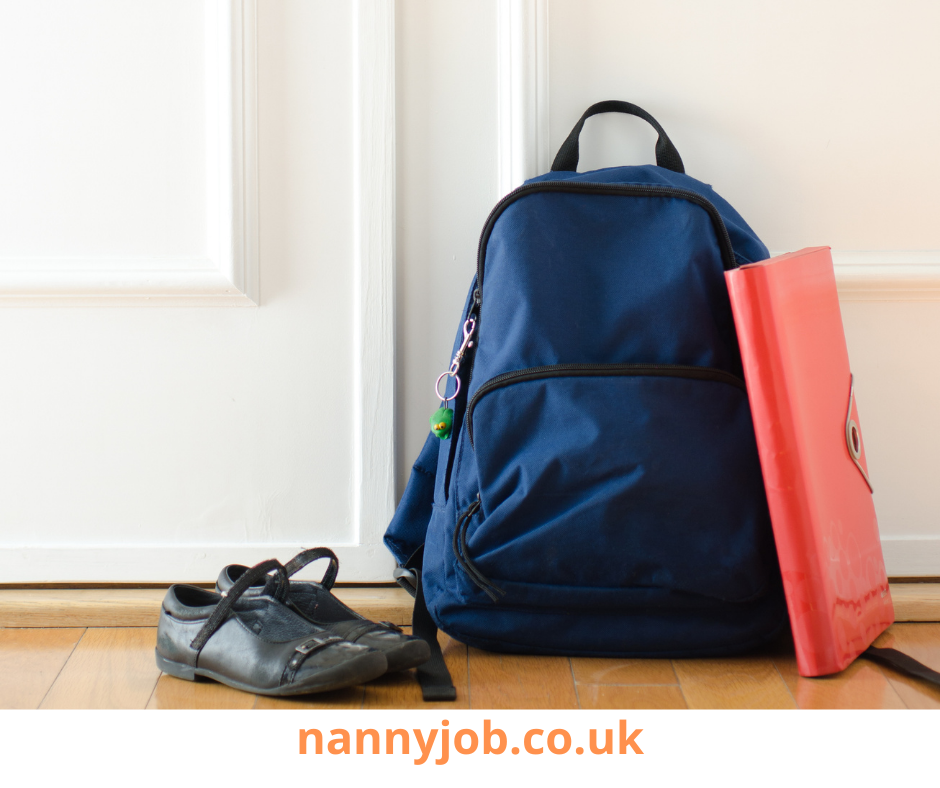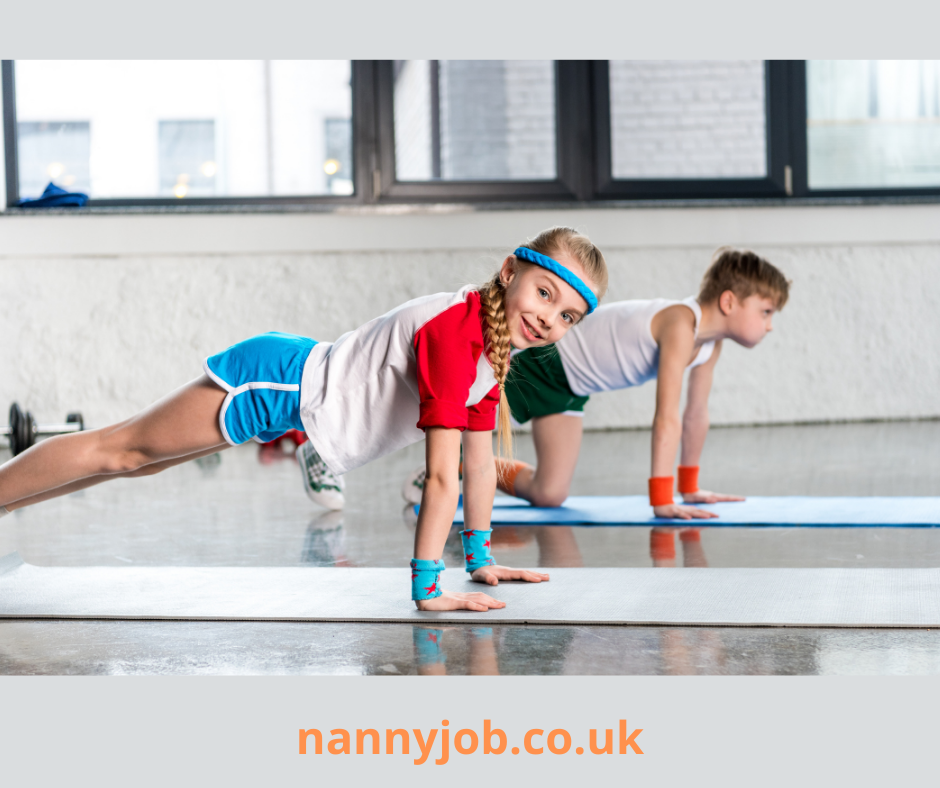Nannies are seldom sick. Even when poorly most will come in and take it easy for a day or so as long as you are understanding about it. If you don’t want your nanny turning up to work with a bad cold you need to make that clear at the start. Many nannies can’t actually afford the time off every time they have a sniffle, and your children have probably already been exposed to the germs.
Month: August 2021
‘Help! I broke the teapot’ and other stories
CRASH! Silence…..Muffled swearing.
We’ve all been there, haven’t we? Broken something, possibly something precious? Ruined a shirt or a pair of trousers? Melted a colander? Blocked the loo?
When you’re in someone’s house for 50 hours a week accidents are almost inevitable, even without counting the added risk of small children running around. Frankly it’s amazing that there are so few accidents. But what do you do when it happens to you?
Continue reading “‘Help! I broke the teapot’ and other stories”
The ultimate back-to-school list
Just in case you’re in a last-minute panic here’s a ticklist of the things you need to buy before school starts again:
□ Uniform (shirts or polo shirts; jumpers or cardigans; shorts, trousers, skirts or pinafores; tie; blazer; fleece; cap or hat; eating or art overalls)
□ School shoes
□ Socks or tights
□ Name labels
□ Sports kit (shorts; t-shirt; tracksuit; socks; plimsolls or trainers; swimming costume; swim hat; towel)
□ Winter coat
□ Pac-a-mac
□ Warm hat, scarf and gloves Top tip: Buy ahead now so when there’s a cold snap you aren’t surprised
□ Book bag or rucksack
□ Pencil case
□ Pens
□ Pencils
□ Coloured pencils
□ Pencil sharpener
□ Rubber
□ Ruler
□ Glue sticks
□ Scissors
□ Lunchbox
□ Water bottle
□ Thermos flask
□ Food for packed lunch
□ Equipment for extra-curricular activities (musical instrument and music bag; football or rugby boots
Private to State: Making The Move When Private Education Is No Longer An Option
Let’s face it, if you have a child in private education and money has become tight, the last thing you want to have to consider is moving them into a state school. Unless the child is happier doing this, most of us would consider altering our finances in all other areas before we have to consider this one. But with the middle classes being the hardest hit by the covid and Brexit, more parents than ever are now having to make this change.
If you’ve found yourself in this situation, it’s really important not to see it as the end of your child’s future, it may even be a good thing, there are some amazing state schools and the old argument that as she private education is the only ticket to Oxbridge and a wonderful career is no longer true.
Here are our tips for dealing with this kind of change:
Commit
If you’ve made the decision, stick to it, and wholeheartedly commit to it. There are so many positives to state education. Cast your mind across all the successful and happy people you know – chances are many of them had a state education. Once you’ve made the decision, be upfront and positive with your children, friends and family.
Positivity
This is NOT something to be ashamed of – and for goodness sake don’t let your children think it is. If they sense that you feel this way then they will feel bad too, so make it into an exciting adventure for them as much as you can – something new where they will meet lots of new friends.
Apply the savings
Work out what you’ll be saving on school fees, and mentally dedicate the money to an area where it needs to be. In doing this, you’ll realise that paying for the necessary things will have just as much benefit to your child. It may be paying for household bills, running two cars, or being able to have holidays. Don’t lose sight of how these things benefit the family, and explain to the child that this money is going to help them just as much in different ways.
Getting it right
If proximity to the school is a factor in whether or not your child gets a place there, check out how long the waiting list is. It may be that you have to wait a couple more terms before they can start, however, if you appear to be an involved parent who will play a part in fundraising for the school then the chances are that the head teacher will push you up the list.
Friends
Your child will no doubt make friends very quickly in a new situation, but if it’s at all possible it’s a good idea to find out if you know anyone who has a child at the new school, even better of the same age / in the same class. You’ll feel happier, and your child won’t be walking in cold.
Timing
This may seem obvious, but if you realise you need to make this move, it’s not always at a convenient time (I.e the end of one term ready to start the next). It’s always better for a child to start a new school at the start of a new school year, or a new term if that’s not possible. Try, if you can, to plan it around this.
Let us know your thoughts on this blog post on our Facebook page….
Starting School – Five Tips For Dealing With Your Own Anxiety
You’ve been waiting for the day for over four years, knowing that you will be immensely proud and excited but also feel a certain sadness that toddler days are officially over. The chances are that your little champ will be raring to go and excited, so how do you deal with the nerves and anxiety that all parents go through leading up to that all important day in September – your little one’s first day at school?
Don’t let it show!
If your little one picks up on your anxiety and relates it to their new situation, they will think its something to worry about, so show them only how exciting and fun it will be, so they only see it as a good thing.
Talk it through
It’s always a good idea to get to know mums of other children starting the same school. The chances are that you already do, if your little one is moving up from a nursery with some chums. If this isn’t the case and you don’t know anyone at the new school, then do your best to find out of any neighbours or associates know anyone at the same school. Making friends with fellow parents and chatting to them about any concerns will help.
Become active!
Becoming an active member of any group or activity that the school has will help you to feel secure and happy about your child attending. If there is a PTA (Parent and Teacher Association) or simply a group of people who help with Summer and Christmas fairs, become a part of things and you will no doubt see that there is no need to feel anxious about the starting school step for your child.
Be prepared!
The last thing your child needs is you rushing him or her around the day before buying new shoes and P.E kits. Make sure you have things in order, tagged up, and ready for school at least a week before the first day. That way you (and your little one) can have a calm few days before hand, and any unnecessary stresses won’t be there.
Role play
You will feel much happier if you feel that your child knows what to expect. Even if he or she has been for mornings or half days to get to know the school, it will help put your mind at rest if you do some role play with your tot before his first day. Things like running through him putting his hand up if he needs the toilet, or showing him the things that you’ll pack into his lunchbox will all help. This will reduce some of the unfamiliar aspects, and if you make this a fun thing (I.e don’t show him your anxiety!) then it will ease your mind that he sees this new challenge as an exciting one.
Do you think we’ve got this one right?! Let us have your comments on our Facebook page…
How to Find a Good Nanny?
In this day and age, knowing how to find a good nanny is both essential and challenging. In fact, hiring the ideal nanny feels impossible for most parents. The thought of hiring someone who screams at your children when you’re not around is frightful, isn’t it? So how do you distinguish a good nanny from a bad one? In general, employing a good nanny starts with a thorough screening process.
Search For A Nanny Yourself
If you don’t want to use the services of a nanny agency, you could search for a nanny on your own, but how do you find a good nanny by yourself?
Nannyjob.co.uk is the best place to start, with literally thousands of nannies searching every month for suitable positions. You could also choose to post an ad in your local paper or in a magazines like The Lady and ask applicants to submit their applications in writing. This ensures that you will only be screening eager and committed candidates.
Churches, the local preschool, and your neighbourhood can also be great resources of trustworthy nannies. You could also ask your family and friends for referrals. You may find that you can trust their recommendations better than anyone else.
Contact a Nanny Agency
One advantage of contacting a nanny agency is that the agency will readily provide you with pre-screened applicants. All you have to do is simply discuss your nanny job description and specific requirements. These agencies will take care of all the initial formalities to help you find a good nanny, safely and efficiently.
A nanny agency service will usually perform background checks along with checking police records for any history of criminal offenses. In the UK, the Criminal Records Bureau provides more extensive access to criminal record information through its Disclosing and Barring service. While you can often rely on a friend’s recommendation, contacting a nanny agency is probably the safest way to find a good, reliable nanny.
Set Up Face to Face Interviews
Once you start receiving applications, immediately read the applications and start identifying potential candidates. Eliminate resumes that reveal negative distinctions about the person. Once you’ve done that you may want to schedule separate interviews with at least two to three candidates. Do not hesitate to ask as many questions as time allows. The interview will help you decide whether the applicant is likely to be a good nanny for your children.
Provide a Trial Run
A trial run gives you time to consider hiring the nanny for long-term employment. The trial period gives both of you the chance to become familiar with each other and decide whether you are a good fit. You will never uncover someone’s true identity until you live with them. More than appraising chemistry, the trial period gives you the opportunity to assess the nanny’s character and level of expertise. If you are comfortable with the candidate, make sure to draft a work agreement before hiring them, and list the terms of your agreement in detail.
Now that you know how to go about finding a good nanny, you can productively focus on your work whilst having peace of mind knowing that you have a reliable nanny taking good care of your children back home.
Future Olympians!
Well, what an incredible buzz the Olympic Games brought with it! They claimed 22 golds, 21 silvers and 22 bronze medals in Japan. With towns and cities across Great Britain welcoming back their hero’s, it’s no wonder that many of us heard a daily announcement from our little ones “I want to do that!”.
So, if you have a child who would like to be the next Laura Kenny, Sky Brown or Tom Daly how do you get started to help them on their way to being the next big thing?
PMA!
Ok, it may sound cliche, but how do you expect a child to believe in itself if you don’t plant seeds of positivity? If they announce they want to learn a sport or event that they’ve seen on the Olympics, then there should be very little reason why they can’t. Make them feel like they can do anything they want, with the right attitude and commitment.
Don’t be a pushy parent
There is nothing worse for a child than feeling pressurised to do something they don’t really want to. Remember that this is their dream, not yours! There is no quicker way to put a child off something than to push them into it if they aren’t interested. Also, if they are not physically or emotionally ready to compete, then starting them too early can end up being frustrating for everyone, and can turn kids off from sports for good.
Local clubs
Ask around or search online for your local clubs that specialise in the area the child is interested in. You’re sure to find something in most towns and cities, and even if you have to travel a little way, it may all be worth it in the end.
Create balance
Ok, so we’ve all heard how many hours a day the best swimmers spend in the pool to become the best, and just how totally dedicated the lives of world class athletes are. When starting out though, children need to see the fun in the event, and not feel that it is simply a trial of endurance, or all consuming. They are not likely to become great at something that they don’t see as being fun and enjoyable, especially in the beginning, so make sure you help create balance, and not expect them to start dedicating their lives to their chosen sport or activity.
Nannyjob wishes you and your little one lots of fun and the best of luck in the shaping of the future Team GB! Keep us informed about how you get on at Facebook.








